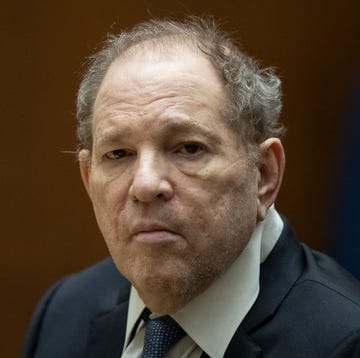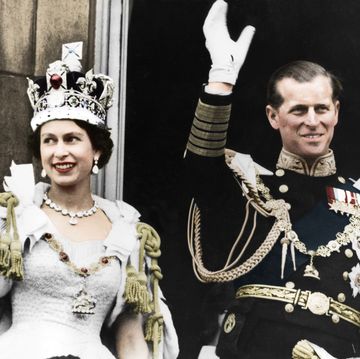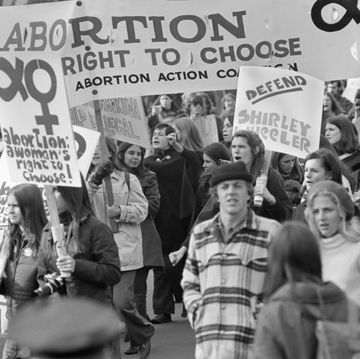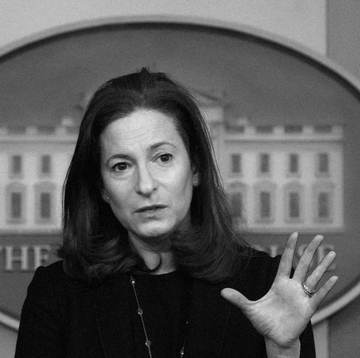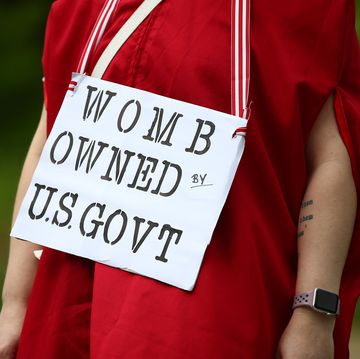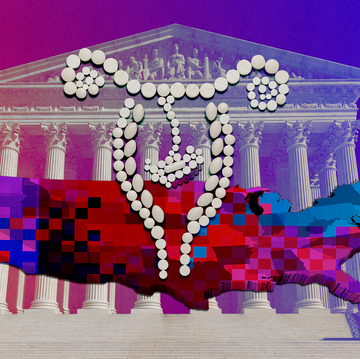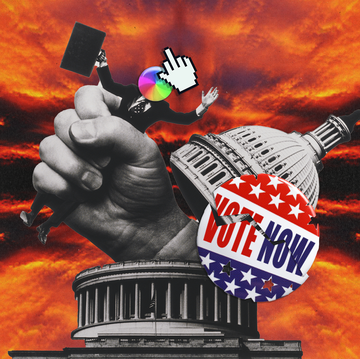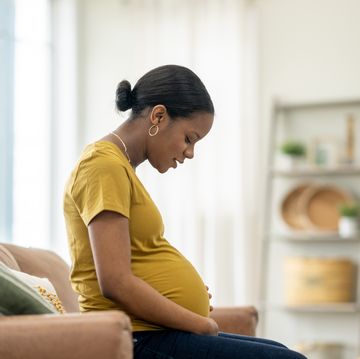In the developing world, 1 in 3 girls are married before they turn 18, and 1 in 9 before they're 15. Early marriage places girls at an increased risk of domestic violence and sexual abuse, and typically means the girl drops out of school and starts having babies, keeping the family entrenched in poverty. When we think of child marriage, the most horrific scenarios often get the leading headlines – 7-year-old girls married off to men in their 40s. But the more common scenario involves adolescent girls, some married to boys more or less their own age, and some married to older men. And even girls who marry as older teens routinely see their educational goals crumble, and their physical and emotional safety compromised.
Manisha Gupte is an Indian women's rights activist who grew up in Mumbai and, after university, moved to a rural village in Jaipur with her husband and small child to do social justice work. While there, Gupte and her husband founded the organization MASUM, dedicated to ending gender-based violence. Twenty-seven years later, they're still working to achieve gender equality not just in their village or even in India, but across the globe. And in a country where almost half of girls are married before the age of 18 despite that such marriages are against the law, one of the issues MASUM focuses on is child marriage. Gupte spoke with Cosmopolitan.com about why early marriage harms boys and girls, the future of feminism in India, and how compassion in our actions matters more than achievements in the end.
Why take on the issue of child marriage?
Child marriage has been an issue in most of Asia, especially South Asia, for centuries. Over the past century, the age that's considered legal to be married in India has increased from 10 to 12, and now it's 18. But it's gendered. It's 18 for girls and it's 21 for boys, which is ridiculous. At 18, your body is ripe enough to have a baby, but at 18, you don't have an undergraduate degree, whereas the boy, he must have the degree because he's the provider.
But the word "child" is not determined by the protagonist; it's a legal term. It's a term determined by the UN and your government. I would prefer the term "early marriage," because that is how the protagonist can define it himself or herself. My son is 29 and my daughter is 25, and if they're not ready for marriage now or ever, and I ask them if they want to get married, it could be early marriage. People should have the right to decide for themselves if, when, to whom, how, and for how long to be married.
One thing we have to remember is when we talk of child marriage, we aren't talking of a 5-year-old being married to a 45-year-old. We're talking about two adolescents getting married. They're both vulnerable. Once a boy has a wife, he's expected to take care of her and the children. So it's not an easy ride for him either. But society is patriarchal, and if the two separate, he can get married again later on, but she doesn't have such an easy road out of that marriage, especially if there's a child. Even if she wants to leave, she's going to turn back, because she might want out of the marriage but not out of being the parent.
What are the solutions to early marriage?
We have to remember that marriage is a community issue in a society that is closely linked in terms of kinship. One girl who doesn't get married in time can delay the marriage of her younger cousin, because it would be rude to get a younger cousin married before an older cousin, and if a younger cousin gets married first, the older girl's chances would be more difficult. So the solution is changing of the structures of patriarchy. But the alternative, as long as those structures exist, would be to create an environment where people see role models who didn't have early marriages. It may be like walking on fire, but once they've made that choice and you stand by them as a friend, saying, "I'm there with you," the community sees there are options besides marriages for young people. Then it's easier for the next generation.
So community awareness is key. We had resolutions passed in the village council meetings, so at least officially it's now declared that the village will not allow child marriage. We have children's groups start from grade three and go to grade eight, and then we have youth groups. We also work with our sons, so the son can say, "Why is my sister's wedding being planned now?"
And with American Jewish World Service, we have youth-led advocacy. When you work with the older generation, they have a vested interest in getting you married early. They aren't monsters, they have your best interests at heart, and they will allow you to say, "I don't want to marry this particular boy," but you have to have a reason why — they will let you reject a number of boys and bide a little time. So we start helping young people bide time. They can say, "Can I just finish this year of college? May I concentrate on my studies?" The father may tell the grandmother, "It doesn't matter if she's done fourteen years of school — unless you go to the fifteenth, it's as good as twelve because she doesn't have a degree in hand," and then after she finishes that year, she might get a job, and then who knows. You open up one window.
What have been some of your success stories?
One girl, when she was in the 11th grade, her parents wanted to pull her out because they were in an extremely marginalized Dalit [members of oppressed classes] family. There was a good proposal, and they weren't sure they would be able to get such a good bridegroom again. MASUM and our staff intervened. She did her 12th grade, and during that time she convinced her parents that she wanted to apply to be a policewoman. She did exercise, and she got her stamina up and studied, and she's a policewoman now. It changed everything. That one small intervention of talking to the parents and saying, "Let's wait and see."
What do outsiders not typically understand about early marriage?
It's important to understand the complexities that surround early marriage, and not to demonize the parents and the cultures. The act is not entirely cultural. Conflict of riots or war or military occupation precipitate early marriage. The moment you see your children are unsafe, then you see safety in marriage. Those can be very dangerous marriages — they can be intergenerational marriages, because someone has lost a wife but he has access to a younger woman. We need to realize there are no quick and dirty answers — and if the answers are quick, they will be dirty.
What one thing would make the biggest impact on the lives of women and girls?
I would say a politics that is enriched with love and compassion. I always try to keep the person who is not in this room in my mind, because that is the person I am here for. I don't know if that's a mushy answer, but it's the truth. To be able to be true to your politics in a way that doesn't put you at the center of things. To have the courage to unlearn. Learning is relatively easy. Unlearning is harder. I would like the women's movement to have leadership from hitherto marginalized and subordinated groups. Dalits, Muslim women, LGBT, sex workers, women with disabilities being the leaders. The rest of us can sit in the audience and re-envision our politics.
That's where Gandhism helps me. He's an immensely equitable person. He says there is no route to peace; peace is the route. So I don't think there is anything big waiting at the end of your life. There's no finishing line. It's the running that matters.
Follow Jill on Twitter.

Jill Filipovic is a contributing writer for cosmopolitan.com. She is the author of OK Boomer, Let's Talk: How My Generation Got Left Behind and The H-Spot: The Feminist Pursuit of Happiness. A weekly CNN columnist and a contributing writer for the New York Times, she is also a lawyer.

